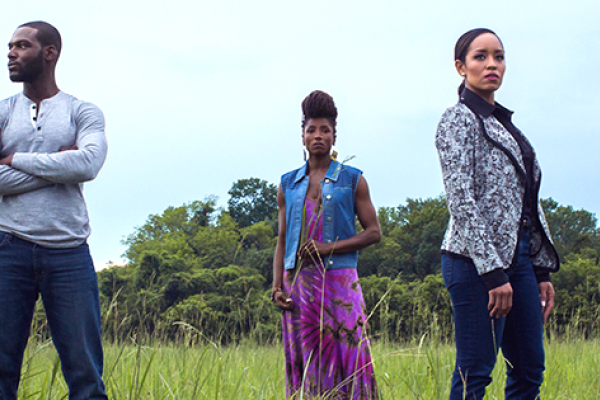Despite having watched only the first two episodes of Queen Sugar, the Oprah Winfrey Network’s new television drama, I think it’s safe for me to say the following (and feel free to hold me to my words as time goes on): Queen Sugar is the most nuanced, carefully crafted, and exquisitely presented television drama about black people I’ve ever seen.
From the first shot of the series premiere — a close-up of a black woman’s dreadlocks — to a scene later in the episode of three generations of black men passionately hugging each other, defying gender expectations in favor of expressing their love, there is already mounting evidence that Queen Sugar is intent on presenting authentic, gripping depictions of the lives of contemporary black families in America.
But, as phenomenal as Queen Sugar is, I must also say this: Queen Sugar isn’t enough. It can’t be one of a very small number of shows that portray the lives of various minorities with dignity and care. We need more shows willing to do the same. We need more shows willing to demonstrate that the stories of the marginalized have just as much worth as those of the privileged.
For decades, stereotypes have persisted on television and discrimination has thrived on camera and off. Those days need to end. It’s possible to right this wrong. It’s possible to make the television landscape more inclusive.
Here’s what must be done to make this a reality:
1. Television Execs Must Give Minority Creators As Much Freedom As They Give White Male Creators
Television executives can place as many minority characters onscreen as they want, but if the characters’ lives aren’t portrayed with care, nuance, and, most importantly, the counsel of various members of the specific identities being portrayed, the executives’ attempt at diversity becomes a failed one. The television show Orange Is the New Black became a topic of conversation in June when it was discovered that, for a show that focuses so much on minority identities, members of those groups are an extremely small percentage of the overall makeup of the writing staff.
For shows that focus on the experiences of minorities, we need minority showrunners. We need writing rooms in which minorities are not a minority.
2. Creators Must Give Other Minority Artists an Opportunity to Practice Their Craft
Ava DuVernay, creator of Queen Sugar, doesn't think she would be where she is today if Shonda Rhimes, the showrunner of Grey’s Anatomy and Scandal, didn't recruit her to direct an episode of television.
“Shonda [Rhimes] gave me an episode of 'Scandal,' and after that just offers came piling in,” DuVernay said. Just one year later DuVernay directed Selma, and became the first African-American female director to have a film nominated for Best Picture at the Academy Awards.
For the first season of Queen Sugar, DuVernay did something unprecedented: She hired all female directors, of various ethnicities and backgrounds, giving them an opportunity they told DuVernay they couldn’t get.
DuVernay explained,
"They all made film, feature films, yet this industry would not allow them to direct episodic. They all tried, they all took the meetings, they all put their foot in the door. You’ve had feature films debuting at Berlin, Venice, South by Southwest, Sundance, and you can't get an episode of TV? That's how [each episode] works if you're a lady. And so it's just ridiculous."
DuVernay also made sure the rest of her crew was incredibly diverse, and she chose largely unknown actors as the show’s leads. The result is a stunning piece of television that feels as though everyone who contributed to its creation invested all of their energy and love into the production, perhaps in part because these sort of career opportunities are known to not come often for minorities in the industry.
Hollywood often relies on the few minority actors we already know, shutting newcomers out of the industry. As someone who had a door held open for her, DuVernay returned the favor — but the burden to be a gatekeeper shouldn't be placed on minorities. In fact, the gate should already be open wide.
3. Viewers of All Ethnicities and Backgrounds Must Tune In
This is so important. We have to watch these shows, on the rare occasions that they come our way, because if we don't watch them, TV execs don't keep them.
Ultimately, as audience members, we have the power to control what we see. TV execs need our eyes watching the programming they select, and if we say we want diversity — if we purposefully watch more shows that are inclusive and that introduce us to narratives and cultures that are simultaneously new to us and reminiscent of our own lives — we can change the television landscape. We can change what we see and thus make sure that everyone is seen.
Now that sounds like good television.
Got something to say about what you're reading? We value your feedback!

